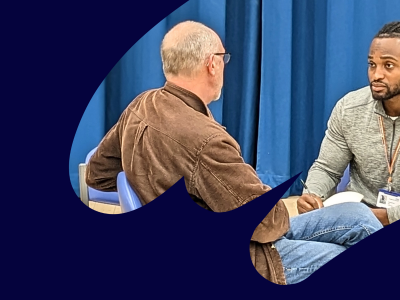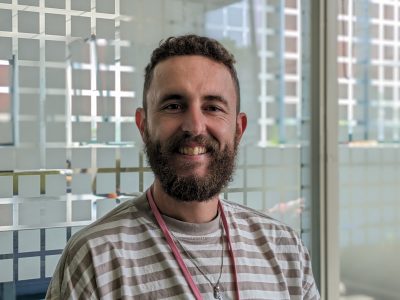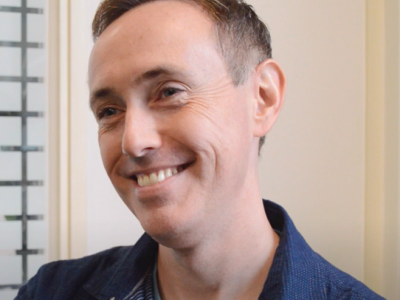My role in Brighton and Hove Memory Assessment Service (MAS) is to provide primary care medical oversight for the people we care for within the service. I bring an understanding of the medical and drug history that might be contributing to a person’s presentation, and liaise with other specialist teams whose knowledge and input we draw on in MAS such as neurosurgery and neurology. Medication initiation is a major aspect of my work and I aim to make this process as collaborative as possible in a sensitive way.
My background
My journey to dementia services has been an unexpected one: my earlier career was founded in emergency medicine which I really enjoyed. However the pull to more person centred primary care, triggered by excellent GP mentors as a student, never diminished and ultimately I decided to pursue a career in General Practice qualifying as a GP in 2008 from the Brighton VTS.
Studying for the DGM
As a Retainer GP I decided to use my CPD time to study for the Diploma of Geriatric Medicine (DGM) and took these exams in 2015. With ever increasing numbers of elder and frail patients, and the increasing complexity of medical advancement and social care structures my sense of disorientation during 10 minute consultations or pressured home visits was frustrating me. Doing the diploma gave me some focus and structure to help me prioritise and work with elder patients to meet their goals and opened my eyes to the possibility of a gentler way of practising that is more “frail friendly”. Subsequent to the DGM I became Clinical Lead for Proactive Care in Brighton and Hove and was privileged to spend additional time working with those most vulnerable to admission – a role described in more detail in the story I wrote earlier in 2017. I learnt so much during this role from my colleagues from a range of disciplines across health and social care.
Asking what matters most
Despite my interest in geriatric medicine I must confess that before I joined MAS I wasn’t fully aware of the full extent of the work that the service does. I enjoy working with and learning from my colleagues in our MAS MDT – usually comprising Consultant Psychiatrist, GP, Community Psychatric Nurses (CPNs), and Memory Support Workers. It was a bit of a revelation – and a relief – to discover the significant support being offered by the Memory Support Workers (MSWs) to people as soon as they are referred to the service – regardless of their diagnosis. In essence our service fronts up the practical help first regardless of whether someone has reached the stage of receiving a diagnosis. The benchmark for NHSE memory assessment service quality is making a diagnosis in 6 weeks – yet when Brighton & Hove MAS audited its work this was not the priority for 70% of the patients – getting early practical help was the priority and the service has been redesigned to meet this patient reported need.
Working with MAS allows me to practice in a more freely person centred way with a service that is conscious of meaningful outcome measures as well as the need for process and flow. There is a sense of job satisfaction from practising with this ethos in mind which I find energising. Dementia science is such an evolving field of medicine. I am curious as to what the future holds for MAS and our patients.
Find out more about MAS
- Improving quality of life for people with memory problems
- Find out more about how we redesigned the MAS service in 2016
- Read our case studies about the impact of redesigning the service
tagged in Brighton and Hove Memory Assessment Services, Meet the team, Memory Assessment Service, person-centred care
No Comments
You may also like

21.03.2024 | by Jo Parker
Here launches Impact Report for 2023-2024

10.01.2024 | by Jo Parker
Working Here: Jamie's story

28.09.2023 | by Jason Willcox
Sharing what works: 4 ingredients of our memory assessment service success

